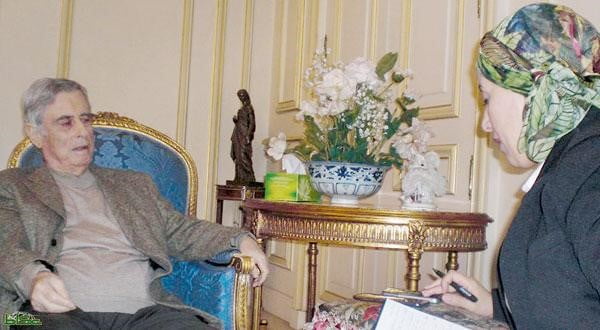If the strike is carried out, what would the next scenario be?
I believe that under the current circumstances, the U.S. president is serious about carrying out the strike. However, it seems that he is working on arranging internal American conditions. If he fails to do so and refrains from the strike, he will lose his credibility as the leader of a major power, because he should have managed his internal affairs before announcing the decision and giving the impression that the United States would strike the regime. Despite all these emergency conditions, the possibility of the strike is still present.
If the strike occurs and leads to the fall of the regime, the Syrian opposition parties should convene a national conference to make arrangements for the transitional phase and select a national leadership that represents all components of the Syrian people—religious, sectarian, ethnic, and political. We hope that Arab countries will support this direction.
2- What does Britain’s sudden withdrawal from the military strike mean, despite the fact that the former British Prime Minister joined the coalition that struck Iraq without returning to Parliament?
The British Prime Minister made a mistake by presenting the issue to the House of Commons before ensuring the success of the decision. This decision has placed Britain in a secondary position regarding Middle Eastern and international issues due to its weakened stance.
3- How do you evaluate the French position supporting the strike and the Syrian people?
The French position on the events in Syria has been positive and has had a good impact on the Syrians. France was the first European country to announce its readiness to carry out a military strike against the regime.
The two European countries with significant relations in the Middle East in general and the Arab world in particular are France and Britain, due to their established relationships with the countries in the region. This knowledge of the regional situation prompted the French president to make a clear decision, which distinguished France from Britain. The major European countries remain in this context.
4- What does Germany’s shameful and consistently negative stance on Arab issues, and the Syrian issue in particular, mean?
Unfortunately, despite Germany’s interests in the Arab world, Germany has taken a position that contradicts the scale of its interests and the security and stability of the region’s countries.
The state’s silence regarding what is happening in Syria creates strong barriers to the continuation of its interests. We hope that Arab governments will consider each country’s stance on the horrific crimes committed by the tyrant Bashar al-Assad and the Iranian regime when forming their international relations.
5- How can the equation involving Russia, China, and Iran be understood in the Syrian context?
Despite the rapprochement between the three countries, each has its own objectives, and these objectives are currently concentrated in Syria.
Iran is a partner in the regime’s aggression against the Syrian people through Iranian fighters from the Revolutionary Guards and volunteers via its clients in Lebanon and Iraq.
Iran’s grand ambitions are to establish a powerful great state that controls the region, using Syria as a base to control Lebanon and Syria, making it accessible to the Mediterranean Sea to the west and the Caspian Sea to the north. It has also worked to fuel sectarian zeal among Shia Muslims and aimed to make their religious and political reference points to use them in countries with Shia Muslim populations.
Current Russia has ambitions reminiscent of the czars and the Soviet Union’s significant influence in the region. This influence makes Russia a partner in regional issues, and its alliance with Iran allows it to regain influence in Central Asian countries.
In reality, Russia has surpassed the phase of isolation on the international stage. Through its influence and partnership with Iran, it has reasserted itself in the Middle East, advancing over other countries. The Chinese position differs in its reasons and motives. China does not seek to establish political and security influence in the Middle East due to its distance and internal burdens, as well as its focus on enhancing its influence in its own region. In the Syrian issue, China has followed the Russian position through political support for the murderous regime in the Security Council.
However, what unites these countries is their stance on the situation in Syria.
6- How will Hezbollah, which can be considered the most important military arm of Bashar al-Assad, be affected if Bashar falls?
In reality, Hezbollah is not the primary arm of Bashar al-Assad but is a key arm for Iran. The primary arm of Bashar al-Assad consists of the military units loyal to him, which he uses to commit his crimes. Hezbollah participates in these crimes alongside units from the Iranian Revolutionary Guards as an organization linked to Iran.
Certainly, the collapse of Hezbollah in Lebanon is assured after the fall of the regime. The victory of the Syrian people will remove Iran from Lebanon, Syria, and Iraq, leaving the Iranian leadership confined to Iran, facing its internal political and economic difficulties.
7- How do you view the current crisis situation in Lebanon?
The crisis situation in Lebanon is a result of Hezbollah’s involvement in Syria and the sectarian zeal that Iran has stirred up in Lebanon. The core problem in Lebanon now is Iranian influence, and the only solution to this problem is the fall of the murderous regime in Syria and the collapse of Hezbollah.



